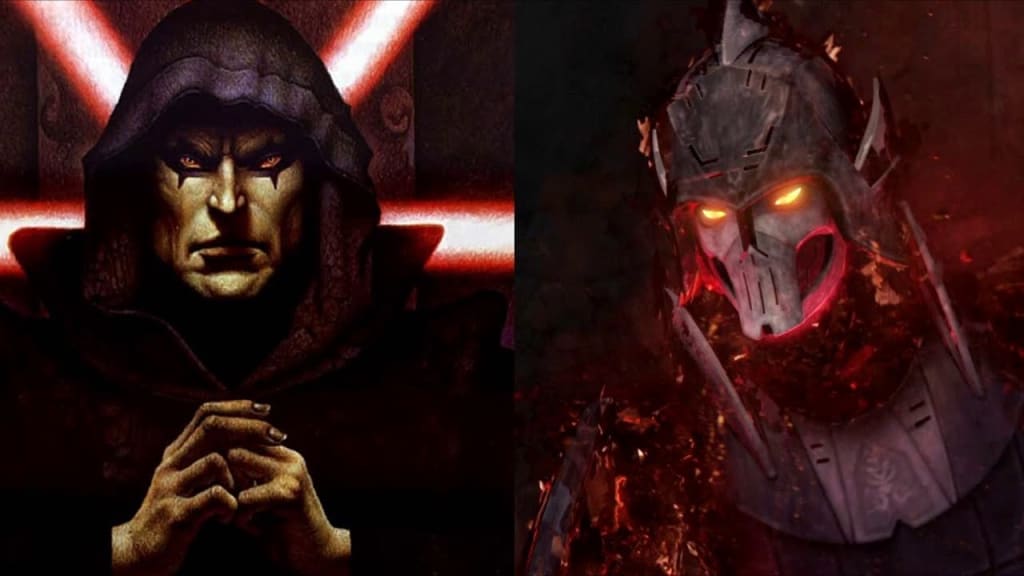Why The Rule Of Two Doesn't Make Any Sense
An Analysis

There can only be two, a master, and an apprentice. The Rule of Two, as it is known, is one of the most important core tenants of the Sith during the time of the prequel and original trilogy. It is how they have operated for the last few thousand years until they came out of hiding under Palpatine and created the Galactic Empire. However, was it really the Rule of Two that saved them? Did the ideology formed by the legendary Darth Bane actually accomplish their goals, or was it in spite of this that they won? Well let's take a look and see if the Rule of Two is as great as the Sith themselves claim to be.
The Rule of Two was born after the defeat of the last major Sith force known as the Sith Brotherhood. The last time Jedi and Sith armies battled each other across the galaxy vying for control was one thousand years before the events of The Phantom Menace. One particular Sith lord did not believe in the ways of the current Sith Order and thought that the best way to destroy the Jedi was not on the battlefield, but in the shadows. Not only that, but the only way to truly be powerful is for there to only be two Sith so as not to divide the power of the Dark Side. The Dark Side of the Force would be potent to those who wield it, not unlike a concentrated poison. That was the reasoning behind Bane’s philosophy. Thus, he got rid of the Sith who lived out in the open, and dismantled the last known Sith Empire. The Jedi and the Republic would not have an enemy to unite around, and the Sith legacy would last a thousand years. Even with that in mind, there were a lot of pitfalls and many things that even Bane did not consider.
RELATED: The Dark History Of Darth Bane
When it comes to the history of the Sith, strength has always been a key factor above all. Kill the master to become the master. Of course how is this done when there are only two Sith, and when should this be done. What if the master dies and the apprentice does not have a pupil of their own ready to teach? That could break the line of succession. This is one of the many massive flaws of the Rule of Two.
With the Rule of Two, when one kills a master, any secret that the master has kept from the apprentice is lost forever, or until someone rediscovers it again. There are only so many Sith holocrons and it is not like there is a library of knowledge all the Sith can go to and study. If anything, it would make newer Sith weaker and weaker as time passes instead of stronger. There is no old masters around to show teach them the old ways. The next generation of Sith have to spend time to figure out what has already been done. They would have to reinvent the wheel, so to speak.
Finally the biggest issue with the Rule of Two is when both Sith die. If there are only two of them, then what happens to the Sith Order? It is a dangerous game to only have an order making up of two individuals with no underlings, acolytes or institutions. This is unlike the Jedi, who do not rely on one or two people to represent the order, and have thousands in their ranks.
This is why the Rule of Two does not make a lot of sense in the grand scheme of things. Granted the Sith are very much about passion not reason. Emotion, not logic. They only think in short term in the search for power that they forget the long term consequences that might come with it. Hence, at the end of the day, the Sith are destined to lose.
READ NEXT: The Unused Story Of Sheev Palpatine
Written By Joel Davis
Syndicated From Culture Slate






Comments
There are no comments for this story
Be the first to respond and start the conversation.